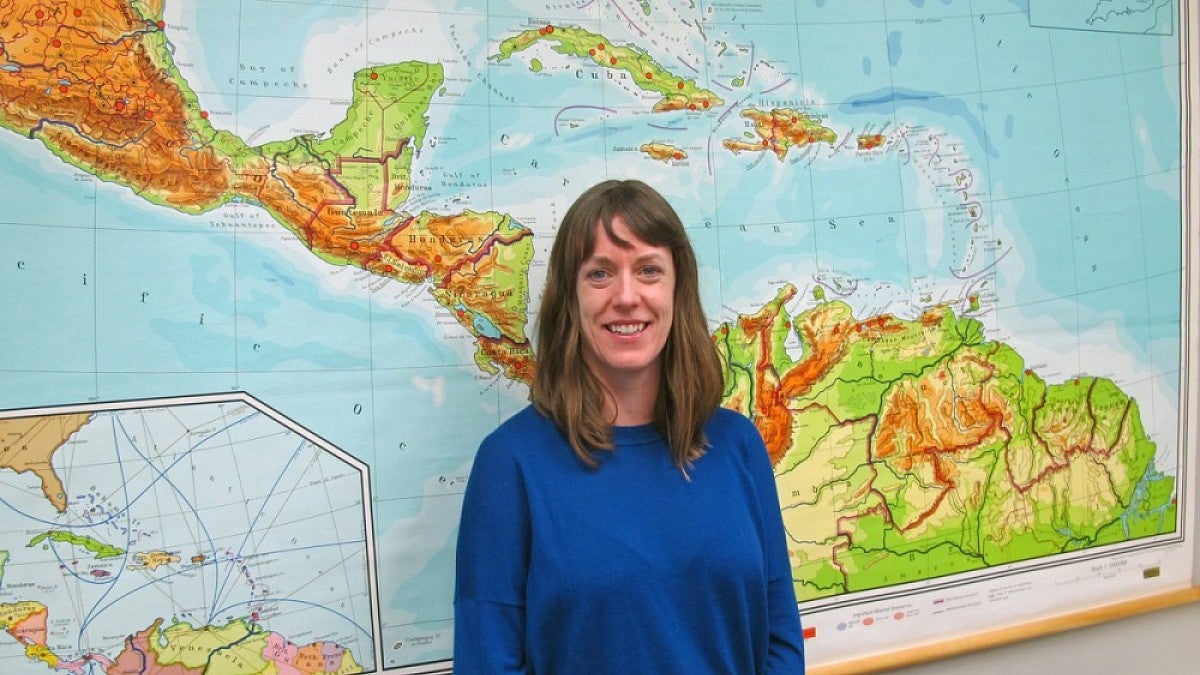Just ahead of the United Nations Climate Change Conference, or COP21, in Paris, an international group of scientists, including UO geographer Katie Meehan, is calling for a broadened and more collaborative approach to climate research that includes non-scientist stakeholders from inception to application.
In a policy paper in the Nov. 13 issue of the journal Science, the team's key message is that local contributors should not only be embraced in the process but also be rewarded for the input they provide.
That message emerged after the co-authors analyzed and categorized 27 climate-change research networks around the world and gauged the roles of stakeholders in producing knowledge on the effects of climate change on local communities. The information gathered is now available in an interactive database.
"The way that we do science in the 21st century is starting to change," Meehan said. "We're including people with different types of knowledge that's not necessarily considered scientific but is valuable for tackling issues like climate change and all of its associated impacts like sea level rise, droughts, wildfires, etc. Those people are important to have at the table if we really want to create policy-relevant outcomes from the knowledge that we produce."
These stakeholders, she added, should be called upon to formulate the questions, collect and interpret the data, and help disseminate the findings. " This change in how we do science is big because it changes the alchemy of players involved, and raises implications for knowledge production, or co-production, with the help of non-experts in the room," she said.
“If we value their knowledge and want them to engage in climate change research to the extent that’s required, we need to compensate stakeholders more than we have,” said Nicole Klenk of the University of Toronto and the paper's lead author.
The six co-authors — Klenk and Meehan, along with Sandra Lee Pinel of Antioch College in Ohio, Fabian Mendez Paz of Colombia's Universidad del Valle, Pablo Torres-Lima of the Metropolitan Autonomous University in Mexico City, and Daniel Kammen of the University of California, Berkeley — are focusing on social and behavioral adaptation to climate change as part of their role as 2014-2016 scholars under the Fulbright Regional Network for Applied Research Program. NEXUS, as it is known, is a program of the U.S. Department of State Bureau of Educational and Cultural Affairs. Meehan's individual research under NEXUS focuses on adaptations related to climate change in Mexico City.
The goal of the project, Klenk said, is to help define how research involving collaboration and co-production on the part of local stakeholders — from farmers, fisherman and hunters to those simply living in areas especially vulnerable to the effects of climate change — is being done and where.
The database, hosted by the Renewable and Appropriate Energy Laboratory led by Kammen at UC-Berkeley, reflects the networks that the team studied. Participants in other networks are encouraged to add their information. The database is being expanded to document and compare climate-change research networks across the globe and illustrate that many rely extensively on collaboration, often without firm policies in place to define stakeholder rights, roles and responsibilities.
— By Jim Barlow, Public Affairs Communications


